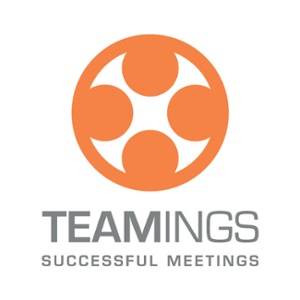Killing opportunities one extra task at a time.

In the late 1990s to early 2000s people started adding ‘Excellent at multitasking’ to the skills section of their resumes. I was no different. Being able to do 2 things at once is an amazing skill and I’ve been practicing since I was a kid while doing my homework in front of the TV. You get more done in less time and it keeps you from getting bored. I’ve noticed multitasking is easiest to perform when I’m on a conference call or attending a webinar. As long as I listen with half an ear, I can get so much more done and I’m super productive. Here are some examples of my multitasking.
- I’ve eaten lunch during my boss’s webinar. While he talked about the next quarter’s marketing strategy, I enjoyed my tuna salad on toast. I made sure to mute my line so my chewing wouldn’t distract my coworkers and I had an extra hour to do work since I didn’t need to take a lunch. Sure, I ran into a little problem later when I reviewed my notes to check my action items and found them to be intelligible. But I’ll figure it out.
- I’ve used a few legal conference calls to catch up on my e-mail. While our lawyers talked about policy and liability, I filed my e-mails neatly into their folders and sent quick responses to our vendors and clients. I even made a file for legal policies. I recently filed an e-mail dealing with noncompliance in the folder. I’m actually pretty confused about its contents. But it’s in the folder for when I need it again.
- When someone walks into my office while I’m on a conference call, I help them with whatever they need. This helps my co-workers stay productive by not making them wait. It was pretty embarrassing when they had to call my name 3 times before I realized the conference call leader was asking me a question. And then I had to ask them to repeat it. Luckily, I knew the answer!
- I usually tell my team my web cam isn’t working because I don’t want them to see me multitasking. Sometimes multitasking can be perceived as not paying attention. I’d hate for them to see me typing away and think that I wasn’t paying attention to their meeting.
- I’ve checked Facebook while on a conference call (or two). Ok, checking social media isn’t very productive, but sometimes I need a break! All this droning on and on about things I don’t need to know is making me fall asleep. Checking up on my friends gives me a big energy boost. It’s really the only way I can get through this call without passing out. Why am I on this call anyway?
On second thought, maybe multitasking isn’t all that productive…
On the surface, multitasking seems like a positive attribute. The ability to do multiple tasks at one time means you can get more done in less time. You’re not wasting time because when one task ebbs you fill in the time with another task. You switch back and forth creating a productive flow – right? Wrong.
Multitasking, especially during a meeting, is a very bad idea. Multitasking decreases your effectiveness. Your IQ drops. You take 1/3 longer to complete a task and make twice as many errors. You get stressed and you can never get better at it. Most importantly, when you multitask during a meeting, you are missing really great opportunities. An opportunity to impress your boss. An opportunity to prove your value to the company. An opportunity to stand out in front of decision makers. An opportunity to create something worthwhile. An opportunity to make a real difference. An opportunity to solve a problem. Imagine all you can accomplish if you put your entire mind and skill set to a task and work with your team to ensure the meeting is a success!
Don’t let the mundane appearance of meeting – web, audio or otherwise – distract you or your participants from the potential that can result from a really successful meeting. As Thomas Edison once said, “We often miss opportunity because it’s dressed in overalls and looks like work.”
If you’re hosting a web or audio conference, odds are you have a few ‘mutlitaskers’ on the line. These people are not only lessening the effectiveness of your meeting, but dimming their own brains. Here are a few ways you can stop yourself and your team from multitasking and release the potential in every meeting.
- Have everyone wear over the ear headsets. There is something about a headset that puts you in serious conference mode. The over-the-ear variety helps to block out outside noise and the quality is much better than a speaker phone.
- Supply an up-front contract banning multitasking. As the meeting organizer, you can do this in the invite and/or announce it at the beginning of the meeting when you talk about your meeting objective. “Today we have a really important meeting objective. I’ve invited each of you because you have an important role in achieving this objective. Please give this meeting your full attention. Let’s start by shutting down our e-mail now.”
- Invite the right people to your meeting. Every person at your meeting should be invited to further your meeting objective. If they don’t have the skills, knowledge or resources to further the objective, they shouldn’t be there.
- Turn the meeting into a video conference. Invite everyone to turn on their webcams so the meeting can benefit from nonverbal communication. People are less likely to multitask if they’re on video.
Multitasking will always be a temptation. The idea of multitasking makes people feel better because it fulfills an emotional need like having fun or being entertained. Like a mental drug, multitasking gives people an emotional boost, but doesn’t really help their productivity. In reality, multitasking just makes things worse. You and/or your team will always want to multitask. By resisting the urge you’ll be able to seize every opportunity a meeting holds – for you, your career and your company.
For more meeting tips and insight, please sign up for our newsletter.


